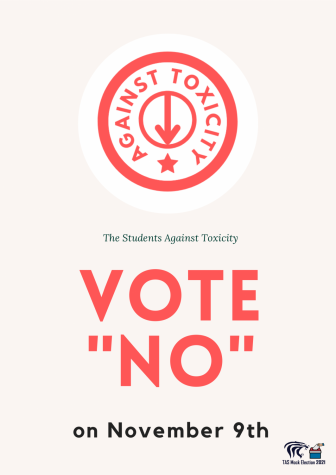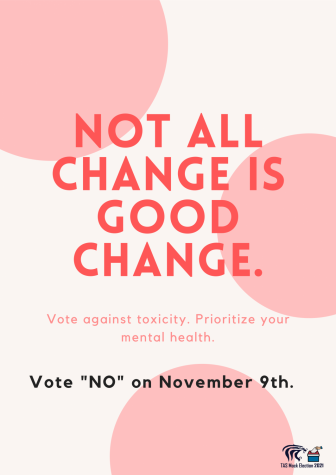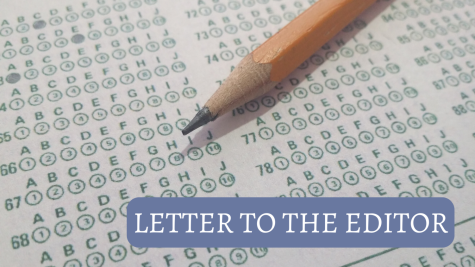LETTER | Students Against Toxicity
Students Against Toxicity is a campaign run by students from the A5 AP US Government class who firmly believe that the current GPA scale should be maintained instead of giving an additional “boost” to AP/IB courses and changing to a 5.0 scale. We believe that such a shift would result in a variety of negative consequences that outweigh positive benefits.
For one, students would become more inclined to choose AP/IB courses for the purpose of inflating their GPAs, sacrificing other classes that they might be more interested in or feel more challenged by. Even if they do not want to, they may experience pressure from peers and parents to opt for these AP/IB courses. As a result, subjects such as performing or visual arts, which offer less AP/IB course options, would likely see less students enrolling so their GPAs do not “fall behind” their peers. Why should TAS students be discouraged from pursuing classes they actually enjoy just for an arbitrary number? The answer is simple: they should not.

In addition, courses like Honors Linear Algebra, Honors Modern Topics and Honors AI are more difficult than many AP classes, but students would feel discouraged to take up the challenge and opt for courses that they believe would raise their GPA even if they do not feel as intellectually stimulated. Granted, AP/IB curriculums are college level courses, but since they use international curriculums and are extremely exam-oriented, they often do not include the most nuances and only focus on the big picture. Many higher ranking colleges and universities are becoming more hesitant to accept AP credits for this reason. According to college counselor Ms. Melanie Hamre, “[overall] rigor is something that may be signaled through an externally assessed exam (such as through the International Baccalaureate Organization or the CollegeBoard) but doesn’t necessarily indicate true rigor of the course overall nor does it reflect a student’s genuine passion for exploring a new subject or learning more about one they already enjoy.”
In contrast, TAS offers many Honors and standard courses that explore the complexities of different subject areas and train students to think critically about their surroundings, preparing them to become better global citizens. It would be a shame if AP/IB classes begin to outshine other courses simply because of the alleged statistical benefit on college applications. In the words of college counselor Ms. Shanice Kok, “motivations for course selection should be stemmed from a love for learning, and not a desire to boost your GPA.” With the GPA scale change, students are at risk of becoming blindsighted to the intellectual benefits of certain courses and hyperfixate on the decimals of their GPA.
If students begin to load their schedules with an excessive amount of AP/IB classes, which would inevitably happen with a change to a 5.0 GPA scale, the general student body would begin to experience increased stress levels and decreased average sleep. Currently, more than 90% of our TAS survey respondents are receiving less than the recommended hours of sleep per night for our age group (at least 8 hours), with over half getting less than 6 hours of sleep each night. Evidently, sleep deprivation is already a prevalent issue in our school community, and the GPA scale change would only compel students to overwork themselves and sleep even less.

And finally, with more time spent on tedious coursework, students would have less free time to pursue non academic interests such as extracurricular activities. Even though many students may take more AP/IB courses for the purpose of impressing colleges, they would end up falling behind in the more personal aspect of applications, which is becoming increasingly important with the trend of holistic admissions, where college admissions officers look for interesting and engaged students who spend time outside of the classroom. Beyond the lens of college applications, not having free time to pursue personal interests can lead to a lack of purpose and meaning in one’s life, which has been proven to show increased risk of anxiety and depression. Obviously, these are both serious mental health issues which we believe should be avoided at all costs.
It simply does not seem reasonable to us to change the GPA scale knowing that these adverse side effects are likely to happen. Not all change is good change, so help us boot the boost by voting against a change to 5.0 GPA scale on November 9th. If you are still worried about college, take it from college counselor and former admissions officer, Mr. Gursky: “admissions officers dive so much deeper into an applicant’s transcript as they dissect and translate an academic record.”



